(6)レーニンが受けた寛大なシベリア流刑~過酷なドストエフスキー流刑時代との違いとは
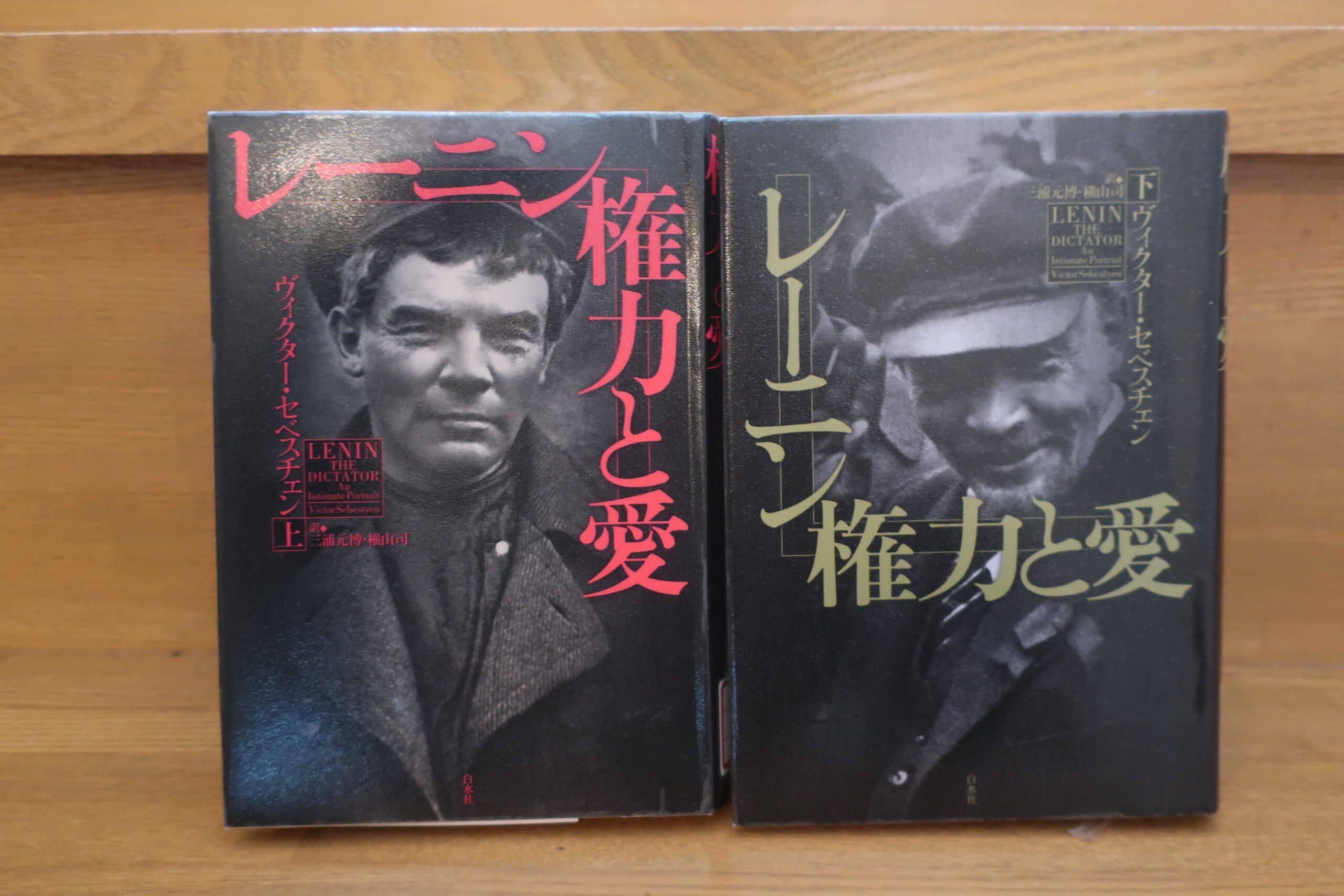
ヴィクター・セベスチェン『レーニン 権力と愛』を読む⑹
引き続きヴィクター・セベスチェン著『レーニン 権力と愛』の中から印象に残った箇所を紹介していきます。
レーニン初めての海外経験
ウラジーミルが祖国を初めて離れたのは二五歳の時だったが、成人してからの生活の半分近くはロシア国外で過ごしている。彼の最初の外国旅行は、サンクトぺテルブルクのマルクス主義者たちに依頼され、西欧亡命中の急進派グループ「労働解放団」と接触を図る革命的な「大陸巡遊旅行」である。
このグループには、帝政体制から逃げ出したロシア反体制運動の大物が皆、名を連ねていた。彼は一八九五年四月末、オーストリア、スイス、フランス、ドイツを巡る四カ月の旅に出る。
この年のもっと早い時期に出発する予定だったが、その後、周期的に彼を苦しめることになるさまざまな病気の症状が初めて出たことで、出発は遅れた。重い肺炎の発作を起こし、数週間、寝たきりになっていたが、回復すると、「革命のための重要な任務」に出かけたくてたまらなかった。(中略)
旅行に出てすぐに分かったのは、自分は外国語に堪能だと考えていたのに、そうではなかったということだ。彼はドイツ語と英語を勉強し、フランス語も本で多少かじっていたが、このいずれの言語でも、だれともほとんど会話ができなかった。この三つの外国語はのちにかなり流ちょうになったが、初めてロシアを離れたときには、自信をもっていたドイツ語に関してすら、ほとんど何も知らなかったことにショックを受けた。「ほんの簡単な単語すら理解できませんでした―発音は思っていたのとは違い、おまけに彼らはとても早く話すのです」。(中略)
二つ目の重大な発見は、アルプスの壮大さだった。彼はアルプスに一目ぼれした。山並みはいつも彼の心を鎮めてくれる。その後も、ナージャ(※レーニンの妻。ブログ筆者注)が言うように「イリイッチは近くに山があるときが一番幸福で、一番リラックスしていられた」。
列車がオーストリアのチロル地方に差しかかり、アルプス高峰の一つが目に入ると、彼はそれに心を奪われてしまった。「ほとんど言葉を失いました」と、彼はすぐに母親への手紙に書いた。
「ここの景色は特別に見事です。わたしはそれをずっと楽しんでいます。わたしがあなたに手紙を投函したドイツの小さな駅を列車が出発すると、すぐアルプスが始まり、それからたくさんの湖が見えて、わたしは客車の窓からほとんど離れられませんでした」。
彼は生涯、スキーを習うことはなかったが、多くのタイプの山岳活動が彼を魅了した。彼が長年の亡命の年月をスイスで過ごした理由の一つは、愛するアルプスが近かったことだ。
白水社、ヴィクター・セベスチェン、三浦元博、横山司訳『レーニン 権力と愛』上巻P123-124
※一部改行しました
レーニン初めての海外旅行で彼がまず気付いたのは外国語が全く通じなかったことでした。勉強したはずなのに実際は思っていたのとは違った。
これは若きレーニンの人間らしさが感じられるエピソードだなと感じました。
そして何より、第二の発見のアルプスへの一目惚れが私にはとても印象的でした。
レーニンと言えば後に誰もが恐れる独裁者です。冷酷無比で躊躇なく多くの人を殺害する命令を下した人物です。
しかしそんなレーニンがアルプスの雄大な景色に感動し、終生自然を愛したというのはなんというギャップでしょう。機械のように非人間的なレーニン像ではなく、何かに感動し、それを愛する感性を持つレーニン。
レーニンも機械ではなく、あくまで人間なのだということをこのエピソードで感じさせられました。
レーニンの逮捕
レーニンは帰国後の1895年12月、革命活動の容疑で逮捕されます。これが彼にとっての初めての逮捕となりました。
逮捕によって、ウラジーミルは革命家に必要な資格証明を得た。彼はパンフレットを執筆し、扇動し集会で演説していた。それに、体制の手で処刑された悪名高い「テロリスト」の弟でもある。しかし、社会から認められるには、獄中生活とシべリアの荒蕪地での流刑生活の時期がないと、本物の革命家として、まともに相手にされないのだ。それが、大義にどれだけ身を捧げているかを見極めるテストの一つなのである。
彼は一八九五年一二月~一八九七年二月の間、予審拘置所の一九三号房に入れられ、この間に四回の尋問を受けた。肉体的な虐待を受けたり、ひどい心理的圧力に晒されたりしたことは一度もなかった。尋問は単なるルーティーンの作業のようであり、他の囚人は尋問のやり方を「嫌がらせ」のようだと形容している。
白水社、ヴィクター・セベスチェン、三浦元博、横山司訳『レーニン 権力と愛』上巻P131
革命家として認められるにはまず逮捕されたという実績が必要というのは何とも興味深いですよね。
ですが逮捕されてしまったらレーニンの兄のように処刑されてしまい危険ではないかと思ってしまいます。
ただ、実はこの頃の逮捕、拘留、流刑というのはかつてとはだいぶ事情が違ったようです。次の引用を読んでいきましょう。
かつてより寛大で、後のソ連時代よりもはるかに寛大な刑事制度
ウラジーミルはさらに三回、同様のリラックスした雰囲気のなかでクリコフ中佐の尋問を受けた。彼は何も明かさなかった。自分の体調と心理状態をしっかりと保ち、意気軒昂だった。彼は家族への手紙で「わたしはロシア帝国のほかの市民より良い環境に置かれています。少なくとも、逮捕されることはないのですから」と、冗談を飛ばしている。帝政下の刑事制度は、拷問と即決の処刑が日常茶飯事だった後年のソヴィエト体制下より、政治犯に対してはるかに寛大だった。
逮捕の数週間後、ウラジーミルは母親に「わたしの健康は満足すべき状態です。ここではミネラルウォーターを飲むことができます。それは、注文したその日に薬局が届けてくれるのです」と書き送った。
彼は拘置生活を耐え抜くために日課を工夫した。のちに、妹マリヤと義兄のマルク・エリザロフが一九〇一年二月、政府転覆活動で逮捕されたとき、彼はいつもの偉そうな説教口調で、自分の厳格なやり方を説明している。
「マルクにはとくに翻訳を勧めておいたよ。まず外国語の文章のロシア語への翻訳、それからそのロシア語文章の外国語への翻訳、という双方向の作業だ。わたし自身の経験では、これが言語を学ぶための最も理屈にかなった方法なのだ。
身体に関しては、彼に……毎日、体操をして、濡れタオルで体をマッサージすることを強く勧めておいた。独居房ではこれが絶対に欠かせないのだ……
また君には、手持ちの本を読むときには取っ替え引っ換え読むよう勧めるよ。わたしは読書や仕事をー翻訳から読書へ、体操から執筆へ、真面目な本から小説へーと変化させていったことが大変に役立ったことをよく覚えている。夕食後、わたしは夕方の気晴らしとしていつも小説を読んだのだが、獄中ほど、それが楽しかったことはないよ。
肝心なのは、毎日の体操を決して忘れないことだ。あらゆる種類の数十通りの体の動かし方を自らに課しなさい、これがとても重要なのだよ」(中略)
拘置所にいる間に、彼は初の本格的な著作『ロシアにおける資本主義の発展』の執筆に取りかかる。「わたしは毎日、九時間寝て、将来の本のさまざまな章を夢に見ています……もし拘置所にずっと長くいたなら、そこで本を完成させたことでしょう」。
この本は急進的理論家として彼の評判を高めたし、ロシアがすでに先進工業国―マルクスによれば、プロレタリア革命の勝利のために不可欠の段階―への道にあるとする、あの議論の分かれる考えを論じていることから、極めて重要なものになる。
拘置所に面会に来る人びとは、彼に金銭や食料、清潔なシーツ、さらには必要以上の快適な品々を持ってきた―「例えば、ある人はわたしにフロックコート、チョッキ、旅行用の膝掛けを持ってきてくれました」と、彼は母親に書いた。
「それらは不要品として直ちに倉庫に入れられてしまいました」。母親とアンナは面会がしやすいように、モスクワからサンクトぺテルブルクに引っ越す。二人は彼のデリケートな胃に合わせて勧められた食料品を送った。そして、拘置所の医者が彼に定期的な腸の洗浄が体に良い、とアドバイスすると、二人は浣腸用のチューブを差し入れた。(中略)
囚人は通常の手紙のやりとりは許可されていた。警備態勢は大変緩かったので、囚人たちは拘置所の中でもさまざまなことを共謀できた。
あぶり出しインクで書かれた秘密メッセージがウラジーミルに届いたかどうかを知らせるたしかな暗号があった。
午後六時に彼らはお茶を淹れるための湯を運んてきて、看守は一般犯罪者を教会に連れて行く。この時までには、「政治囚」は手紙を細長い紙片に破っておく。それから、彼らはお茶を淹れ、看守が立ち去るやいなや、紙片をカップに浸す。手紙はこうして「現像」されるのだ。
拘置所では、手紙を炎の上にかざすという普通のやり方はできない。湯で試すというのはウラジーミルの思い付きだった。「牛乳で書いているところを見つからないように、わたしたちはパンで小さな『インク瓶』を作った。格子がきしむ音が聞こえると、それをすぐにロに入れてしまったんだ、彼はあるとき、ナージャへの手紙の追伸にこう書いている。「きょう、わたしはインク瓶を六つ食べたよ」
白水社、ヴィクター・セベスチェン、三浦元博、横山司訳『レーニン 権力と愛』上巻P133-134
※一部改行しました
少し長くなってしまいましたがレーニンが逮捕された当時の監獄の雰囲気がとてもわかりやすく解説されています。
読んでわかりますように、想像以上に監獄は緩かったようです。むしろ快適とさえ言えたかもしれません。レーニンはこの監獄期間を利用したくさんの本を読み、政治的著作の執筆まで行っています。
差し入れも自由で、監視をかいくぐっての秘密のメッセージ交換までしていました。
これでは革命家を捕まえて監獄に入れた方が政府にとっては都合が悪いのではないかと思ってしまうほどです。
ドストエフスキーが逮捕された1849年の時とはまるで違う状況です。その頃の留置はかなり過酷で発狂する者や命を落とす者もいたというのですからその違いは歴然であるかと思われます。
寛大なシベリア流刑 ドストエフスキー流刑時代との違い
サンクトぺテルブルクの拘置所で一四カ月を過ごしたあと、ウラジーミルは一八九七年一月二九日、シべリアへの三年間の「行政追放」を言い渡される。もっとも、シべリアのどこに流されるかは、当初は決まっていなかった。裁判も上訴権もなかった。
母親の要請で、彼は流刑地まで警察の監視下ではなく、自費で行くことを許された。これでこの長途の旅は格段に快適なものになる。二月一三日、彼は拘置所から釈放され、流刑地へ移動するまでの四日間をサンクトぺテルブルクで過ごすことを許可された。例によって、彼はこれらの日々を他の革命家たちとの会合で過ごす。
旅の第一段階は一一週間かかった。この時も彼は特別待遇を受けた。母親が当局と掛け合い、彼は家族と会うためにモスクワに数日間滞在することを許された。彼は滞在を二日間延ばし、三月六日、母親、姉のアンナ、およびその夫のマルク・エリザロフと一緒にモスクワを出発した。家族は翌日、ツーラ駅で彼と別れ、モスクワに戻った。(中略)
終点のクラスノヤルスクで、彼は自分の流刑地がどこになるのか、当局からの通告を待たなければならなかった。しかし、それは苦労ではなかった。彼は、富裕なウオッカ蒸留業者で、有名な愛書家でもあるゲンナジー・ワシリエヴィッチ・ユージンが所有する膨大な蔵書を収めたユージン図書館で一日中過ごした。
ユージンの友人の一人がアンナ・ウリヤーノワを知っていたのだが、彼は日ごろ、流刑先へ向かう途中の囚人のうちの何人かを選び、自分の家に自由に出入りし、図書館の八万巻の書物を読むことを許していた。蔵書には一八世紀までさかのぼるいくつかの定期刊行物が全号そろっており、ウラジーミルは『ロシアにおける資本主義の発展』の執筆に役立つと考えた。
夜明けから日没までのほとんどをユージンの本に囲まれて過ごした五週間ののち、ウラジーミルは流刑先を通告された。エニセイ川岸の小村、シュシェンスコエだった。これ以上の朗報はほとんど考えられなかっただろう。
そこは広大なシべリア地方の南西部に位置し、気候は比較的穏和で、政治囚の間では「シベリアのイタリア」と呼ばれている場所だった。
それでも、シュシェンスコエに一番近い大きな町、ミヌシンスクまで蒸気船で八日かかり、そこから馬車で一日の旅である。彼には農民の小屋が割り当てられた。周りを広大な草原と森、それに沼地に囲まれていた。晴れた日には、はるか遠くにサインスカヤ山地の雪を頂いた丘陵がかすかに見えた。(中略)
状況は、のちにソ連の反体制派が強制収容所で直面したものほどひどくはなかった。ウラジーミルは弟のドミトリーが送ってくれたべルギー製の二連銃と大量の弾丸を所持することさえ許された。一カ月もしないうちに、あながち冗談でもなく、彼はドミトリーに、こっちへ来ないかと誘った。「わたしたちは一緒に狩猟に出かけられるよ―シべリアがわたしをスポーツマンにしてくれればの話だけれど」
白水社、ヴィクター・セベスチェン、三浦元博、横山司訳『レーニン 権力と愛』上巻P135ー137
※一部改行しました
レーニンはシベリア流刑に関しても寛大な処置を受けました。
母親の嘆願で移動そのものも快適なものとなっています。ドストエフスキーはマイナス40度にもなる12月の真冬に馬車で強制連行されましたが、レーニンは自費で鉄道で快適に移動することができました。
しかもその流刑先はシベリアの中でも特に温暖で生活しやすい環境で、私たちがイメージするような過酷な強制労働も課されないという待遇でした。
ドストエフスキーが流刑にあった1849年のシベリア・オムスク監獄の過酷さは彼の小説『死の家の記録』で詳細に描かれています。
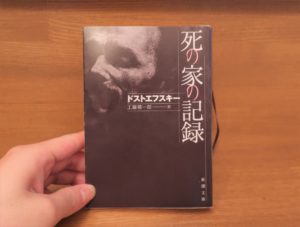
シベリア流刑というとドストエフスキーのこのイメージがあったので、レーニンの流刑生活を知った時はその違いにかなり驚きました。
もちろん、シベリア流刑全体としては過酷なものでした。以前私のブログでも紹介したチェーホフの『サハリン島』はその典型です。
ロシアの偉大な劇作家チェーホフは当時地獄の島と呼ばれていた極東のサハリンを訪れます。ここでの悲惨な生活をこの本では明らかにしていますが、もしレーニンがここに送られていたとすれば、先ほどのようなレーニンの言葉は出てこなかったものと思われます。
どこに配流されるかによってもずいぶんと状況は違ったのかもしれません。
とは言えやはりかつての時代よりも帝政末期の監獄制度はだいぶ緩かったという事実は注目に価します。
こうした緩さによってレーニンは革命家としての力を蓄えていくことになります。
この時の経験があったからこそ、後に自らが権力を握った時、想像を絶するほど厳しい刑事制度を作り上げたのでしょう。レーニン政権下では裁判なしの即時処刑や死につながる過酷な強制収容所を次々と作り上げ大量の逮捕者を収容します。自らの権力を維持するために、危険分子には一切容赦しない。こうした考えは自らの経験によるものが大きかったのかもしれません。
続く
Amazon商品ページはこちら↓
次の記事はこちら
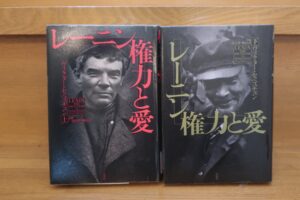
前の記事はこちら

「レーニン伝を読む」記事一覧はこちらです。全部で16記事あります

関連記事






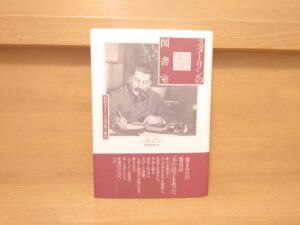
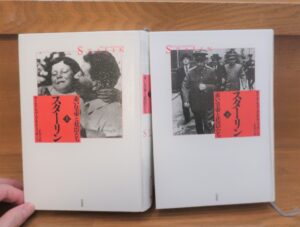
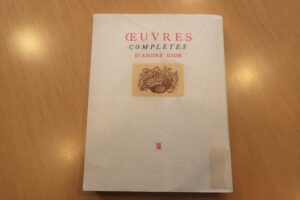
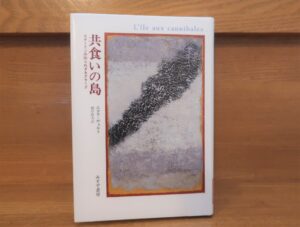
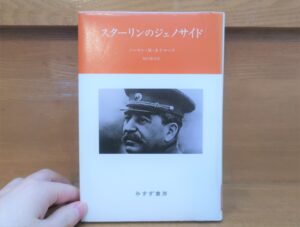
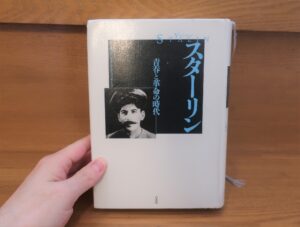
コメント